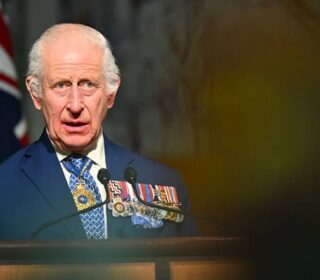Effective communication serves as the foundation for any successful relationship, whether personal, familial, or professional. It is the medium through which individuals express their thoughts, emotions, and needs, facilitating mutual understanding and connection. Clear communication fosters trust and strengthens bonds, while inadequate communication can lead to misunderstandings, frustration, and emotional distance. This discussion will explore the critical role that communication plays in relationships and how it can be cultivated to enhance relationship quality and satisfaction.
1. Establishing Trust and Promoting Transparency
Trust is the bedrock upon which all relationships are built. Open and honest communication is vital to developing and maintaining this trust. When individuals communicate transparently about their emotions, intentions, and actions, they foster a sense of security within the relationship. This transparency minimizes the potential for misunderstandings and the erosion of trust that can result from secrecy or miscommunication.
Key Considerations:
- Transparent communication reinforces honesty, providing a foundation for trust.
- Open dialogue mitigates the risk of misunderstandings or doubts.
2. Facilitating Effective Conflict Resolution
Conflict is an inevitable aspect of any relationship. However, the manner in which conflicts are addressed can significantly influence the overall health of the relationship. Effective communication enables individuals to express concerns, listen to differing perspectives, and collaborate to reach a resolution. Conversely, avoidance of communication during conflicts can result in unresolved issues and emotional resentment. Open discussion allows for resolution and promotes greater understanding between parties.
Key Considerations:
- Clear communication prevents the escalation of minor issues into larger disputes.
- Engaging in dialogue fosters empathy and mutual understanding.
- Constructive communication promotes compromise and reconciliation.
3. Enhancing Emotional Intimacy
Emotional intimacy is essential in romantic relationships, as well as in close friendships and familial connections. It is cultivated when individuals feel heard, understood, and supported by one another. Sharing personal thoughts, fears, and aspirations allows individuals to forge deeper emotional connections. This type of intimacy is largely facilitated by regular, open communication that fosters closeness and mutual understanding.
Key Considerations:
- Open communication deepens connections by allowing individuals to feel valued.
- Sharing vulnerabilities strengthens emotional bonds.
- Emotional intimacy is closely tied to overall relationship satisfaction.
4. Clarifying Needs and Expectations
Communication is essential for expressing individual needs, boundaries, and expectations within a relationship. Assumptions about a partner or loved one’s ability to intuitively understand one’s needs can often lead to disappointment. By articulating specific desires or boundaries, individuals reduce the likelihood of unmet expectations and the frustration that can result from such misunderstandings.
Key Considerations:
- Clear communication ensures that both parties’ needs are understood and met.
- Misaligned expectations can be avoided through transparent discussions.
- Expressing boundaries fosters mutual respect and understanding.
5. Strengthening Connection and Comprehension
Communication is crucial in deepening relationships, as it allows individuals to learn more about each other’s values, beliefs, and experiences. Continuous dialogue facilitates a deeper appreciation of one another, while also allowing relationships to evolve as individuals change over time. Regular communication ensures that relationships remain dynamic and adaptive to these changes.
Key Considerations:
- Regular communication fosters continuous growth within relationships.
- It enhances comprehension of each other’s values, experiences, and needs.
- Effective communication prevents relationships from becoming stagnant.
6. Preventing Misunderstandings
Misunderstandings often arise when communication is unclear, incomplete, or based on assumptions. Such misunderstandings can cause unnecessary conflict and emotional distress. By communicating directly and actively listening to one another, individuals reduce the likelihood of misinterpretation, thereby maintaining a harmonious relationship.
Key Considerations:
- Clear communication minimizes the potential for hurt feelings and confusion.
- Ensuring that both parties are aligned reduces unnecessary disputes.
- Effective communication clarifies intentions and prevents erroneous assumptions.
7. Promoting Long-Term Relationship Stability
Sustained and effective communication is integral to the longevity of any relationship. Over time, relationships are subjected to various challenges, such as external stressors, life changes, and personal growth. A strong foundation of communication enables individuals to navigate these challenges together, maintaining connection and mutual support through life’s inevitable ups and downs.
Key Considerations:
- Consistent communication allows couples to weather challenges and adapt together.
- It addresses potential issues before they become unmanageable.
- Healthy communication habits contribute to resilient and enduring relationships.
Strategies for Enhancing Communication in Relationships
- Practice Active Listening: Engage attentively with your partner or loved one during conversations. Demonstrate empathy, seek clarification when necessary, and avoid interrupting.
- Communicate Honestly and Directly: Articulate your thoughts and feelings clearly, without omitting essential information or engaging in indirect communication.
- Utilize “I” Statements: Frame concerns using “I” statements (e.g., “I feel…” or “I need…”) to avoid assigning blame or making accusatory remarks.
- Ensure Mutual Understanding: Following important discussions, confirm that both parties have understood each other’s perspectives accurately.
- Foster a Safe Environment for Vulnerability: Encourage open dialogue by creating a non-judgmental space in which both individuals feel comfortable expressing their thoughts and emotions.
- Avoid Assumptions: Refrain from assuming that you know the other person’s thoughts or feelings. Instead, seek clarification when needed.
- Exercise Patience: Communication is a skill that develops over time, and misunderstandings are inevitable. Approach conversations with patience and a willingness to learn from one another.
Conclusion
In conclusion, effective communication is the essential foundation of any strong relationship. It promotes trust, emotional intimacy, mutual respect, and adaptability, all of which contribute to the longevity and satisfaction of the relationship. By fostering open, honest, and respectful dialogue, individuals can build deeper, more meaningful connections that withstand the test of time and continue to grow.
1. Building Trust and Transparency
Trust is the foundation of any relationship, and open communication is the key to building and maintaining that trust. When individuals are transparent about their feelings, intentions, and actions, they create a sense of security within the relationship. Partners who communicate openly are less likely to hide things from each other, which reduces the potential for misunderstandings or feelings of betrayal.
Why it Matters:
- Open communication promotes honesty, helping partners feel safe and secure.
- Transparency prevents misunderstandings and minimizes feelings of doubt or suspicion.
2. Resolving Conflicts Effectively
Conflict is inevitable in any relationship, but how couples or individuals handle conflict is what determines the health of the relationship. Effective communication allows people to express their grievances, understand each other’s perspectives, and work together to find a solution. Avoiding communication during conflicts can cause resentment to build up, whereas discussing issues openly can lead to resolution and deeper understanding.
Why it Matters:
- Good communication prevents small issues from escalating into bigger problems.
- It promotes empathy, helping partners understand each other’s emotions and viewpoints.
- Constructive dialogue fosters compromise and reconciliation.
3. Enhancing Emotional Intimacy
Emotional intimacy is a vital aspect of romantic relationships, but it also plays an important role in friendships and family connections. Emotional intimacy is cultivated when individuals feel heard, understood, and supported. By sharing personal thoughts, fears, and dreams, partners create a bond that goes beyond the surface level. This deep emotional connection is often built through regular, honest communication.
Why it Matters:
- Open sharing helps partners feel more connected and valued.
- It allows for vulnerability, which strengthens emotional bonds.
- Emotional intimacy fosters greater relationship satisfaction and longevity.
4. Meeting Needs and Expectations
One of the most important functions of communication is to express needs, boundaries, and expectations. In relationships, assuming that your partner or loved one can read your mind often leads to disappointment and frustration. Clearly expressing what you need from the relationship—whether it’s more quality time, emotional support, or a specific boundary—can prevent feelings of neglect or misunderstandings.
Why it Matters:
- Communication helps ensure that both partners’ needs are met.
- It prevents misaligned expectations, which can create frustration and hurt.
- Setting boundaries through clear communication fosters mutual respect.
5. Strengthening Connection and Understanding
Communication helps individuals get to know each other better, allowing for deeper connections and understanding. Through conversations, partners share their values, beliefs, experiences, and perspectives, which helps them appreciate each other more fully. Continuous communication fosters growth, as individuals evolve and change over time, and ensures that the relationship adapts accordingly.
Why it Matters:
- Ongoing communication allows relationships to grow and evolve over time.
- It promotes a deeper understanding of each other’s needs, values, and experiences.
- Strong communication keeps relationships dynamic and prevents stagnation.
6. Preventing Misunderstandings
Poor communication often leads to misunderstandings, which can result in unnecessary conflict and emotional pain. Misunderstandings typically occur when communication is unclear, incomplete, or assumed. When individuals communicate directly and actively listen to each other, they reduce the chances of misinterpreting each other’s intentions, thus creating a more harmonious relationship.
Why it Matters:
- Clear communication reduces the likelihood of hurt feelings or confusion.
- It ensures that both parties are on the same page, minimizing unnecessary conflict.
- It prevents assumptions and clarifies intentions.
7. Nurturing Long-Term Relationship Health
Consistent and effective communication is key to the longevity of any relationship. Over time, relationships can face a variety of challenges—life changes, external stressors, personal growth, and more. Having a strong foundation of communication allows individuals to navigate these changes together, maintain their connection, and continue to support one another through life’s ups and downs.
Why it Matters:
- Strong communication helps couples weather challenges and changes together.
- It allows partners to address issues before they become too big to handle.
- Healthy communication patterns lead to lasting, resilient relationships.
Tips for Improving Communication in Relationships
- Practice Active Listening: Pay full attention to your partner or loved one when they are speaking. Show empathy, ask clarifying questions, and avoid interrupting.
- Be Honest and Direct: Express your thoughts and feelings openly, without sugar-coating or withholding important information.
- Use “I” Statements: Frame your concerns using “I” statements (e.g., “I feel…” or “I need…”) rather than blaming or accusatory language (e.g., “You never…”).
- Check for Understanding: After important conversations, check in with your partner to ensure that both of you understood each other’s points of view.
- Create Safe Spaces for Vulnerability: Encourage open dialogue by creating an environment where both partners feel safe to share without judgment.
- Avoid Assumptions: Don’t assume you know what the other person is thinking or feeling. Ask questions and seek clarification when needed.
- Be Patient: Communication is a skill that takes time to develop, and miscommunication will happen. Approach conversations with patience and a willingness to learn from each other.
Conclusion
Effective communication is the lifeblood of any healthy relationship. It fosters trust, intimacy, and mutual respect, allowing individuals to connect on a deeper level and resolve conflicts constructively. Whether it’s through talking, listening, or simply being present, investing in communication can lead to more meaningful and fulfilling relationships. By nurturing open, honest, and respectful dialogue, we can build relationships that stand the test of time and grow stronger with each passing day.

















